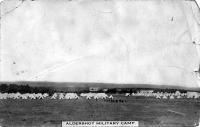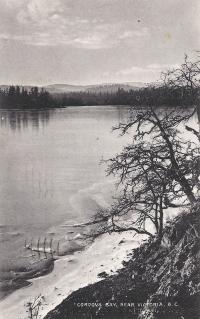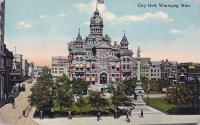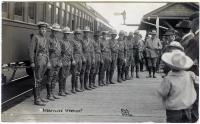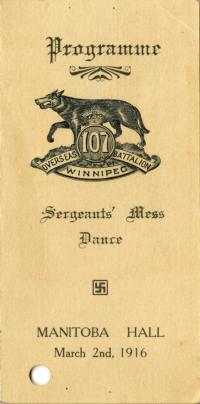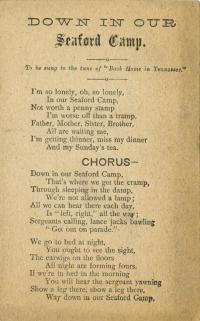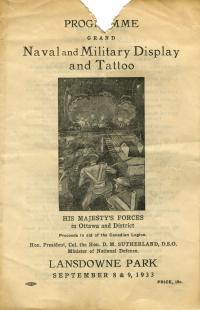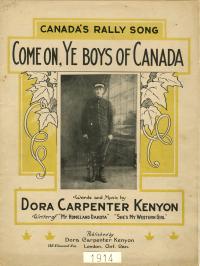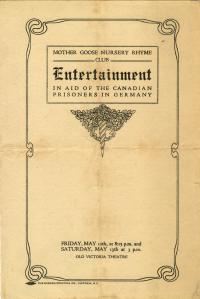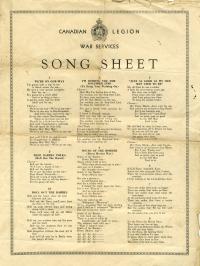Relaxing
"Hello Rob"
Soldier Karl P. Johnson of Wolfville, Nova Scotia, wrote to a friend in Moncton, New Brunswick from the Aldershot military camp in March, 1916.
Joined up
Soldier Albert Bigmore of Victoria, BC, wrote to a friend to inform him he had enlisted in the army in December, 1916.
"Caught an Austrian here"
After thanking the recipient of this postcard, Miss M. Faulkner, soldier Wilfrid E. Fakeley of Kindersley, Saskatchewan, went on to discuss the consequence of tampering with water for an Austrian soldier.
Vegreville's Warriors
This postcard from Vegreville, Alberta was never mailed but it does have the caption, "all of these but two want wives, they are volunteers."
Sergeants' Mess Dance 1916
This program for the 107th Battalion's Sergeants' Mess Dance at Manitoba Hall in Winnipeg, Manitoba, on 2 March 1916, features the swastika, a Hindu symbol of good fortune.
Down in our Seaford Camp
This postcard from the Seaford military camp in the United Kingdom was left blank but features a song sung by soldiers to the tune of "Back Home in Tennessee."
Grand Naval and Military Display and Tattoo
The Grand Naval and Military Display and Tattoo of September 1933, was an event held to raise funds for the Canadian Legion. The event featured thirteen active units in the Canadian military, including the Royal Canadian Mounted Police, the Royal Canadian Naval Volunteer Reserve, and more.
Canada's Rally Song
This rally song by Dora C. Kenyon was published in 1914, after the First World War had begun, in London, Ontario.
Entertainment in Aid of POWs
To raise funds for Canadian prisoners of war imprisoned in Germany, the Mother Goose Nursery Rhyme Club held an event with numerous musical performances at the Old Victoria Theatre, in Victoria, British Columbia.
Songs for Legion Services
This song sheet was used by the Canadian Legion for their War Services following the Second World War

